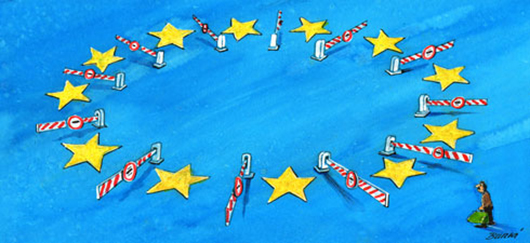“Four freedoms” is the expression chosen to indicate the free circulation of goods, services, capital and people in the European Union. A common market that stared in the late 1940’s with the CEE and has been institutionalized through Schengen in 1985.
The progressive integration phases, with the elimination of all tariffs and customs barriers, has permitted the creation of an EU single market to move around a union as freely as they do within a single country.
The physical (borders), technical (standards) and fiscal (taxes) barriers among the 28 member states have been removed to the maximum extent possible – until the Arab Spring at least.
The creation of an European economic block has acquired a growing importance and competitiveness to face the challenge of the global market, as the abolishment of the many international trade restrictions.
More than 50 years of international and multilateral trade agreements to achieve this “global country”.
Schengen can be seen as one of these. What is the human being if not a kind of capital? The stock of knowledge, habits, social and personal attributes embodied in the ability to perform labour so as to produce economic value. Allocating resources in the best way possible is the fundament of modern economy – especially in crisis time.
The Schengen area allow every year 400 million European citizens to move without conditions (or nearly) – even if terrorism, first, and immigration, latter, highlighted the need and importance of strengthening the free circulation rules. It’s a pretty good turnout!
An increasing movement of goods led by integration in markets, integration led also by social and racial penetration. Bottom-up knowledge and change.
Maybe the only forward-looking strategy that nowadays doesn’t create matters in this “new” Europe.

